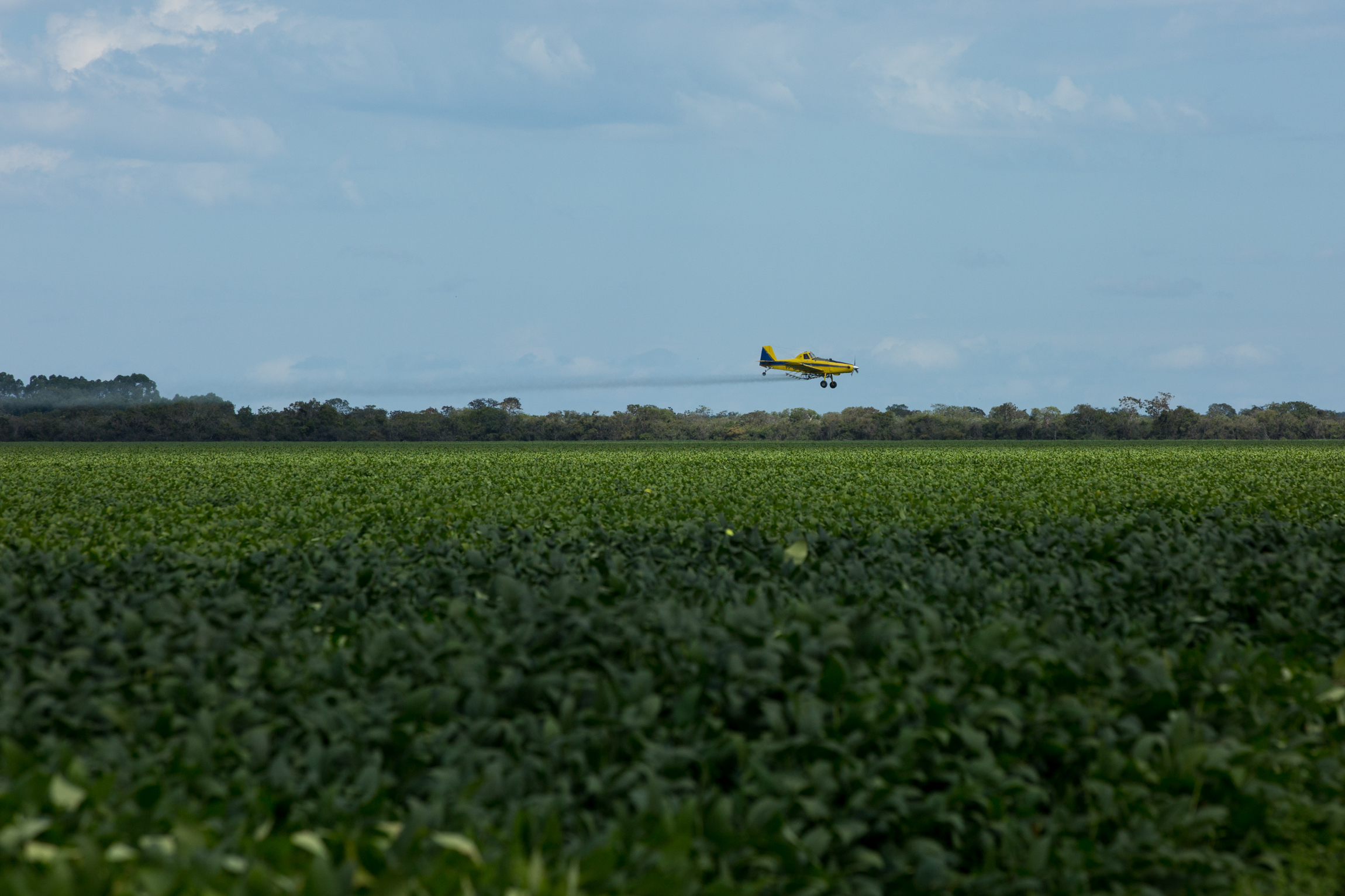Palmerina Ferreira Lima was a small-scale farmer in the Brazilian Cerrado, until her land was stolen. At the age of 77, she watched a company put up fences to keep her out and build a massive industrial soy plantation. In the decade since they seized her and her neighbors’ property, the project has nearly dried up the river that her community relies on for water.
“We are here afraid of dying of thirst,” she told organizers. “If only these projects would stop, water would come back. But they don’t stop.”
Who owns the soy plantations destroying Palmerina’s community? Harvard University.
Using its endowment, Harvard has invested over $1 billion in farmland, including holdings in Brazil, South Africa, Russia, the Ukraine, New Zealand, Australia, and the U.S. The university has become one of the world’s largest farmland investors. This school isn’t just influential in education; when others see how Harvard invests, they follow suit. Harvard’s investment style has bolstered a global cadre of farmland speculators making the same bad choices, displacing communities and destroying the environment.
Recently, Harvard sold $325 million of its farmland in the Brazilian Cerrado to an industrial agribusiness. Harvard thinks it can wash its hands of its human rights violations with this sale, but as a student at the Harvard Kennedy of Government, that’s not what I want Harvard to do. I want my school to make amends. I want them to pay reparations.
Harvard’s investments have caused serious destruction. Thanks to extensive research by groups like GRAIN and Rede Social de Justiça e Direitos Humanos, we know their land in Brazil was often acquired through illegal means, forged land titles, and violent intimidation of communities.
In Australia, Harvard neglected its due diligence and destroyed aboriginal burial sites while clearing land. In South Africa, Harvard grabbed land that had been granted to Black workers after apartheid, essentially rolling back reparations for the sake of profit. Again and again, poor, Black, and indigenous people bear the brunt of Harvard’s recklessness.
Land holdings like this aggravate the climate crisis. Agriculture is responsible for about a quarter of greenhouse gas emissions. In particular, Harvard’s brand of industrial, monoculture plantations exhaust local water supplies, use harmful chemicals like RoundUp, and contribute to deforestation. Research found that Harvard’s cleared lands contributed to the devastating 2019 wildfires that left Brazil’s biodiverse Cerrado region up in smoke.
It is ironic that an institution like Harvard, that brands itself as a climate leader, is actively causing climate destruction. But aggravating the climate crisis actually makes Harvard’s land more valuable. At least, that’s what Harvard was banking on. In its own 2012 report, Harvard Management Company explained that they invested in natural resources “because we believe its physical products are going to be in increasing demand in the global economy over the coming decades.” Looking at a harrowing future of food, water, and land scarcity, Harvard saw only dollar signs.
Take Harvard’s 10,000 acres of California vineyard investments. They weren’t betting that a good Sauvignon Blanc will fund the university. They wanted the groundwater underneath it. A report interviewing farmers in the area makes it clear, “With the land, [Harvard] was acquiring rights to vast sources of water in a region where the earth’s warming is making the resource an ever-more-valuable asset.” When the area saw water shortages, community and media made noise about Harvard’s scheme.
The problem is: selling off the land isn’t enough. Harvard cannot walk away from the harm it is creating. Today, Harvard’s $325 million sale in Brazil isn’t any consolation to impacted communities. All it did was change hands from one harmful agribusiness to another. The new owner, Ricardo Farria, is not only likely to continue extractive use of this land, but has ties to right-wing Brazilian President Jair Bolsonaro, who is enacting these same human rights violations across the country.
In quietly leaving their harmful investments, Harvard lost the chance to do the right thing. What we need are reparations: returning the land to communities, paying them for harm caused, and investing in environmental restoration.
Harvard Management Company says they don’t comment on individual investments. They have $53 billion to keep track of and can’t be responsible for everything that happens in their name. This only strengthens the case for reform. Harvard Overseer Kat Taylor resigned in protest over this very issue, citing the endowment’s “opaque” and unethical investments in “land purchases that may not respect indigenous rights [and] water holdings that threaten the human right to water.”
Maria Luisa Mendonca of Brazilian human rights group Rede Social writes, “Any casual look into what’s happening in that part of Brazil should have set off alarm bells…If they just looked into the historical records of these land areas, they would have been able to see that there are existing land conflicts, and they should have stayed away from that.” We deserve due diligence and transparency on everything done in Harvard’s name, because it’s done in our name too.
